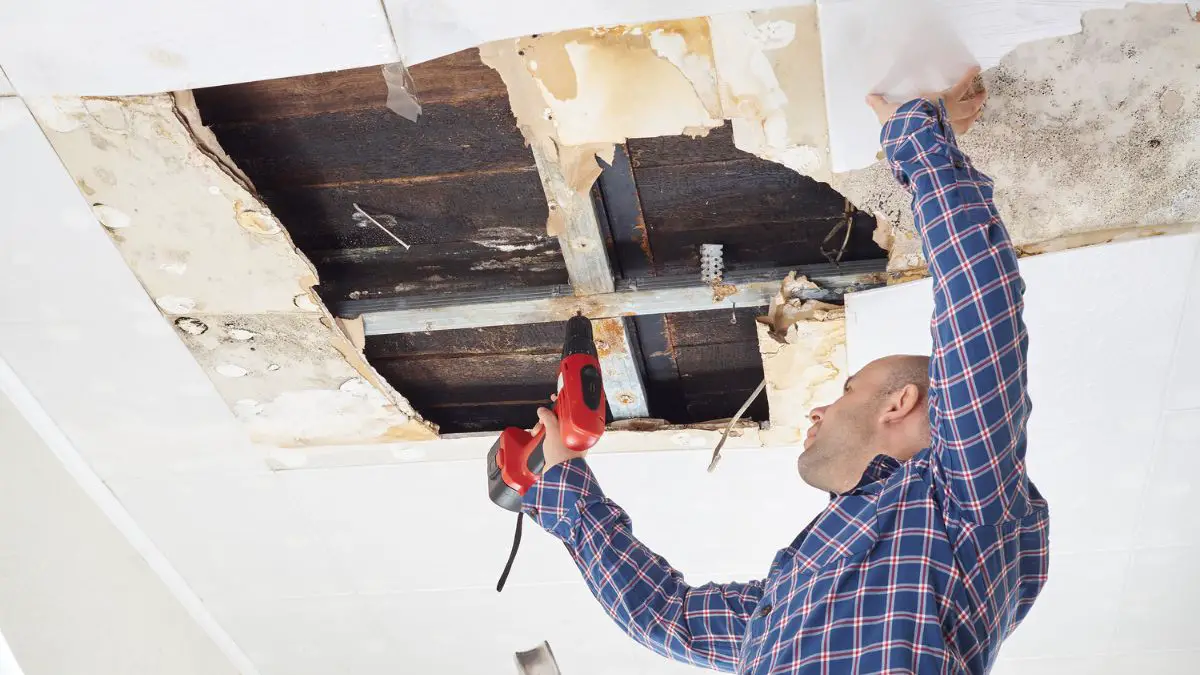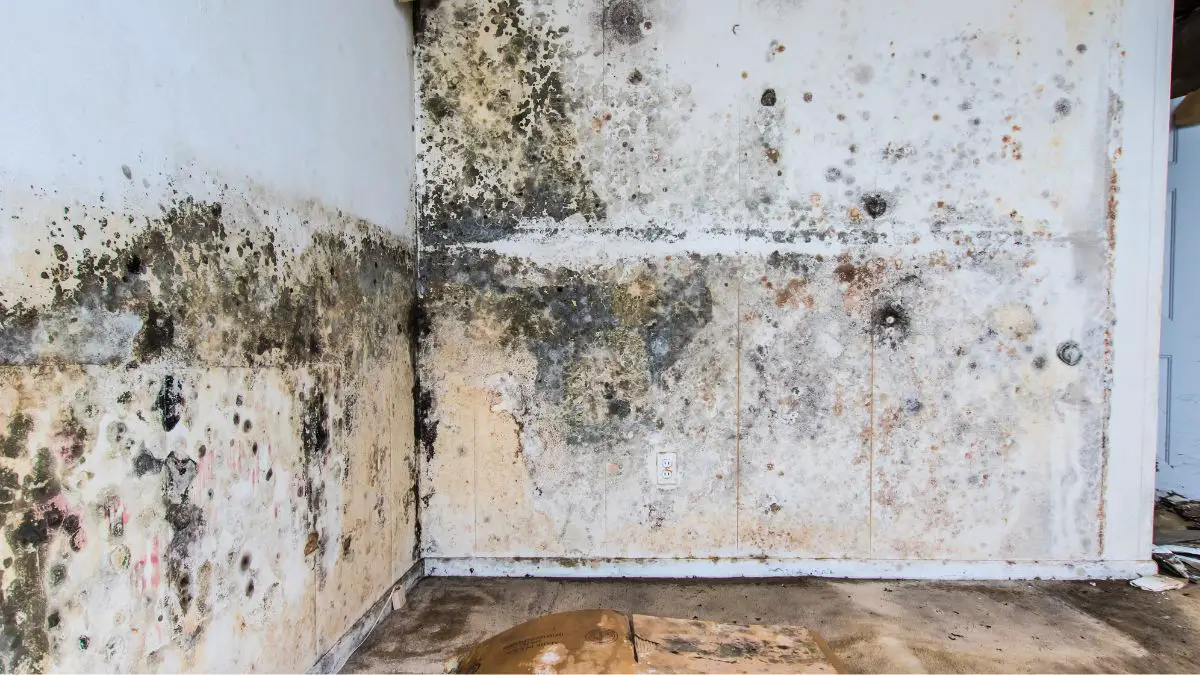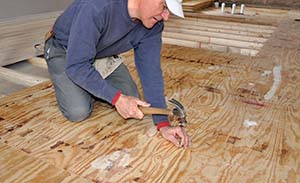Water damage and restoration experts state that you should follow these three water damage insurance claim tips.
- Report and document your claim to your insurer immediately and document the damage with photos and notes.
- Mitigate further damage immediately to prevent additional damage, such as drying out areas or making temporary repairs.
- Maintain a detailed inventory of damaged items, including their value, to expedite the claim process.
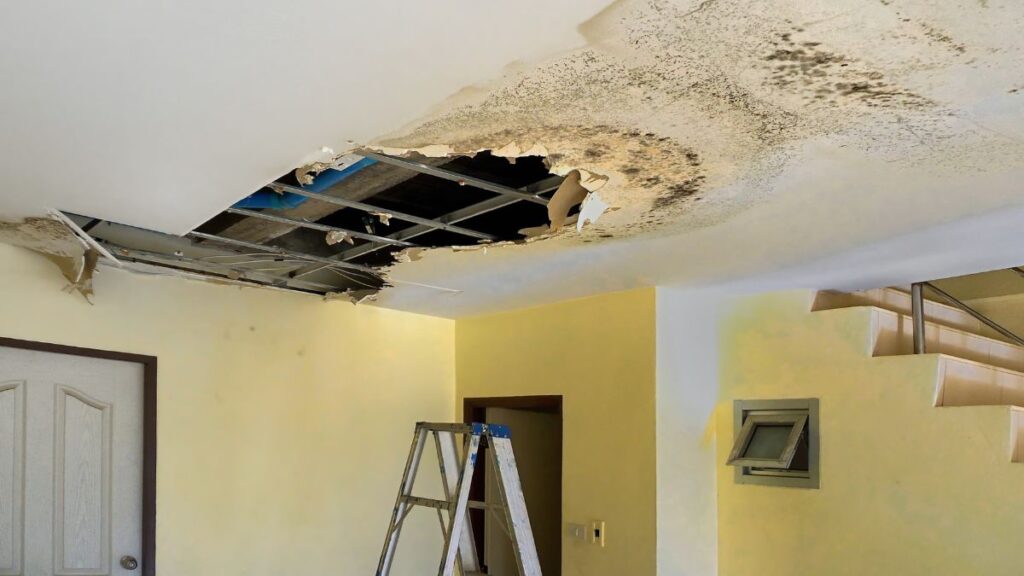
1. Contact Your Insurance Company Quickly
After documenting the extent of the damage, your next step is to contact your insurance agent or company’s claims department as soon as possible. Most policies require that you report water damage within a specific timeframe for it to be covered by your policy.
Failure to report it in time may result in denial of insurance coverage. Gather all the necessary information before contacting your insurer, including policy details and damage documentation, so they can start processing your claim immediately.
Summary
Promptly contact your insurance agent or claims department, as most policies require timely reporting for coverage.
2. Document Damage With Photos and Videos
When water damage occurs, the first thing you should do is document the extent of the damage and consider water damage insurance claim tips.
Taking photos and videos of all water-damaged areas can be extremely helpful for your insurance claim and is one of the most essential water-damage insurance claim tips. Be sure to take clear, high-quality images that show the full scope of the damage.
Include any affected personal property coverage, such as furniture, electronics, or other valuables. In addition to taking photos and videos, making a water damage insurance claim list of all damaged items is important.
Note their original value if possible, and keep receipts if you have them. This information will be necessary for your insurance company when processing your claim.
Summary
Immediately document the damage with clear, high-quality photos and videos, and compile a list of all affected items, noting their original value and providing receipts if available.
3. Mitigating Further Damage
Once you’ve contacted your insurance provider company, it’s important to mitigate any further damage from occurring while waiting for help to arrive.
Shut off any water sources still flowing or leaking into your property; this could mean shutting off taps or valves or calling a plumber for emergency repairs. Remove any standing water using buckets or towels if possible – but only if it’s safe to do so without risking injury from electrical hazards or contaminants in flood water.
If there are large amounts of standing water, it may be best to call a professional restoration company to remove it and assess the damage.
Taking these initial steps right away can help minimize further damage and increase your chances of getting your water insurance claim approved.
Summary
Take steps to prevent further damage by stopping any ongoing water flow, safely removing standing water, and considering professional help for extensive damage, all of which can enhance your chances of claim approval.
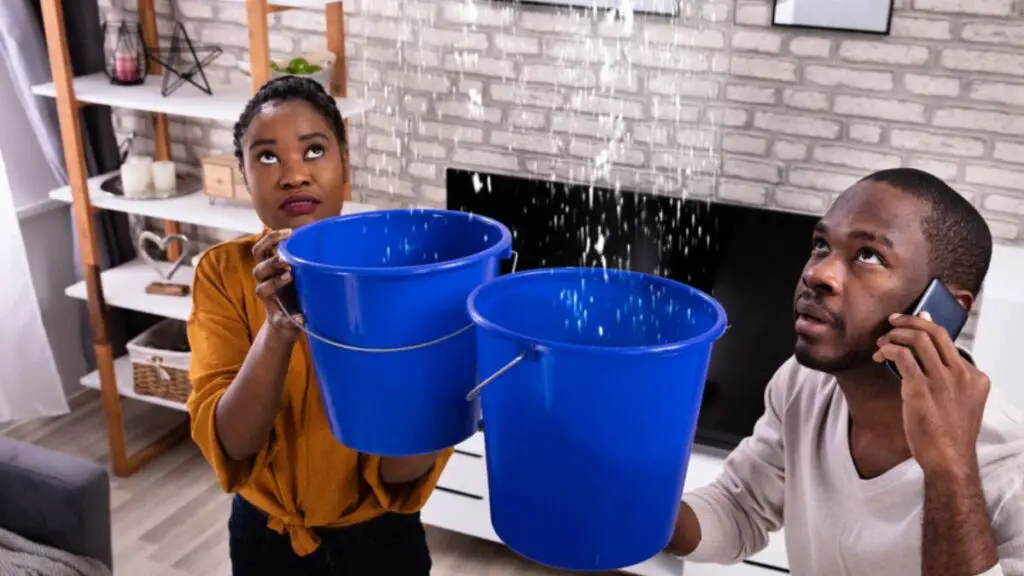
4. Determine if You Need to Leave Your Home
Amid a water damage crisis, one question looms: Should you stay in your home or seek temporary shelter elsewhere? It’s a tough call, and the answer depends on several factors.
Consider the extent of the water damage. Is it confined to a single area, or has it spread throughout your home? A localized issue, like a leaky pipe in the basement, might not disrupt your daily life too much.
But when the damage is extensive, staying in your home could be uncomfortable or unsafe. Your insurance carrier may provide some money for additional living expenses within policy limits.
Think about the type of water damage you’re dealing with. Water damage from a clean source, like a broken pipe, is less hazardous than damage from a backed-up sewer line. Living in a home with potential contamination from sewage or mold poses health risks that you shouldn’t ignore.
Assess the progress of your water damage insurance claim. Are repairs underway, or are you still in the documentation and assessment stage? Living in a construction zone can be stressful and disruptive. It might be better to seek temporary accommodation until the restoration is complete.
Here are some key points to consider:
- Extent of Damage: Is the water damage localized or widespread?
- Type of Water Damage: Is the water clean or potentially contaminated?
- Progress of Insurance Claim: Are repairs underway, or is your home still being assessed?
Summary
Deciding whether to stay in your home during a water damage claim depends on the damage extent, water contamination level, and claim progress.
Always prioritize safety and consider seeking temporary shelter if the damage is extensive, the water is contaminated, or your home is a disruptive construction zone.
5. Understanding Your Policy
First, let’s define what we mean by ‘water damage’. In the insurance world, damage from water refers to the destruction caused by water that has escaped or been released from its normal confines. This could be anything from a burst pipe to a leaking dishwasher.
But here’s where it gets tricky. Not all types of water damage are covered by a standard homeowners insurance policy. For example, damage caused by flooding often requires a separate flood insurance policy. On the other hand, water damage from a sudden event, like a burst pipe, is typically covered.
Now, let’s delve into the different types of water damage:
- Water Leaks: These can be slow and steady, causing long-term damage or sudden and catastrophic. Insurance usually covers insured homes from water damage from a covered peril like sudden leaks, but not damage from ongoing, unresolved plumbing leaks.
- Flooding: This is usually defined as water damage caused by an influx of outside water into your home. Most standard insurance policies do not cover flood damage, even from a natural disaster.
- Seepage: Water enters your home through cracks in the walls, floors, or a leaky roof. Seepage is considered a maintenance issue and is not usually covered by insurance.
Summary
Not all types of water damage, such as flooding or seepage, are covered by standard homeowners insurance. Understanding your policy’s coverage is crucial for confidently navigating the claim process and protecting your home.
6. Know Your Policy Coverage Limits
Your insurance policy is a contract. It outlines what types of water damage are covered and what isn’t. For instance, most standard homeowners insurance policies cover sudden and accidental water damage from a burst pipe or a leaking appliance.
However, not all water damage is treated equally. Flood damage, for example, is typically not covered under a standard homeowners insurance policy.
For that, you’d need a separate flood insurance policy. Similarly, water damage from lack of maintenance or neglect, like ongoing leaks or seepage, is usually not covered.
Here are some key points to understand about your coverage:
- Covered Damage typically includes sudden and accidental water damage, such as a burst pipe or leaking appliance.
- Uncovered Damage usually includes flood damage, seepage, and damage from neglect or lack of maintenance.
- Policy Limits: Your policy will also have limits, the maximum amount your insurer will pay for a covered loss.
Summary
Your insurance policy specifies what types of water damage are covered, typically sudden and accidental incidents, and what aren’t, such as flooding or neglect.
Understanding these distinctions, along with your policy’s coverage limits, is crucial when filing a water damage insurance claim.
7. Maximizing Your Insurance Payout
You’ve filed your insurance claim for water damage and are now waiting for the payout. But did you know there are strategies you can employ to maximize your insurance payout? Let’s explore these together.
First and foremost, thorough documentation is your best friend. The more evidence you have of the damage, the stronger your claim. This includes photos, videos, and a detailed inventory of damaged items. Don’t forget to note their value and purchase date.
Next, consider hiring a public adjuster. These professionals work for you, not the insurance company. They can help you navigate the claims process, negotiate on your behalf, and ensure you get the payout you deserve.
Avoid making repairs before the insurance adjuster visits. You only want to get the leak stopped to prevent further damage. They need to see the damage firsthand to make an accurate assessment.
However, do take steps to prevent further damage, as this is usually a requirement in insurance policies. Here are some key tips to maximize your payout:
- Document Everything: Take photos and videos, and keep a detailed inventory of damaged items.
- Consider a Public Adjuster: They can help you navigate the claim process and negotiate a better payout.
- Wait to Make Repairs: Let the insurance adjuster see the damage firsthand before making any repairs.
Common mistakes can lead to a lower payout. For instance, not understanding your policy, failing to document damage, or not mitigating further damage can all hurt your claim for water damage.
Summary
To maximize your water damage insurance payout, have thorough documentation of the damage, consider hiring a public adjuster for professional help, and wait for the insurance adjuster’s visit before making repairs.
8. Understand the Claims Process and Timeline
Every insurance carrier has its own procedure and separate policies for handling claims, so it’s important to understand your specific policy and check some water damage insurance claim tips.
The process involves filing a claim, arranging for an adjuster’s inspection and evaluation of gradual damages, negotiating a claim settlement, and receiving payment.
Summary
Understanding your specific insurance policy and its claim procedures is crucial, including deadlines and required documentation for water damage claims. Prepare and learn about these processes to better communicate with your claims representative or adjuster.
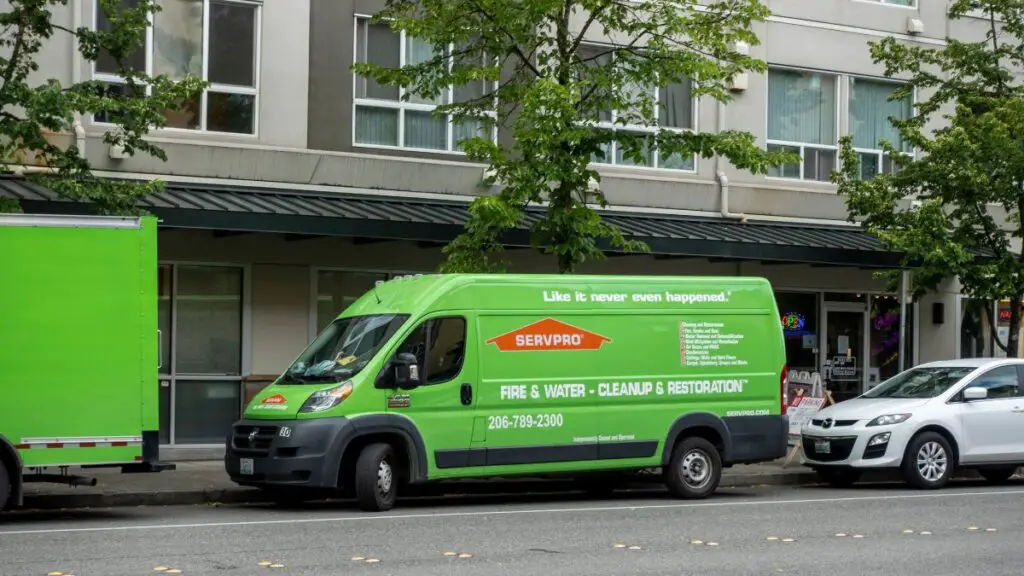
9. Hire a Professional Restoration Company
It’s crucial to act fast to minimize the damage and prevent black mold growth when it comes to water damage. Hiring a professional restoration company can offer several benefits, including:
- Expertise – Professional restoration companies have extensive training and experience in handling various types of water damage, from burst pipes to flood damage. They use specialized equipment and techniques to detect hidden moisture and dry out your home quickly.
- Efficiency – With the right tools, techniques, and experience, professionals can complete the cleanup process more efficiently than DIY attempts. This reduces the risk of further mold damage or mold growth.
- Insurance Assistance – A reputable restoration company can help you navigate the insurance claim process by documenting the damage and providing detailed reports that support your claim.
How to Choose the Right Water Damage Restoration Company
Not all restoration companies are created equal. Here are some water damage insurance claim tips for choosing a reliable and trustworthy restoration company:
- Licensing – Check if your state or local licensing board licenses the company. This ensures that they meet specific standards for quality workmanship.
- Certifications – Look for certifications from industry organizations such as the Institute of Inspection Cleaning and Restoration Certification (IICRC). These certifications indicate that the company has undergone rigorous industry training and best practices.
- References – Ask for references from past clients or read online reviews to understand their reputation in your community.
- Availability – Choose a company that offers emergency services 24/7 so they can respond quickly when you need them most.
Following these water damage insurance claim tips and hiring a professional water damage restoration company can make all the difference in the outcome of your claim.
10. Working with Your Insurance Company
It is one of the most essential tips from the water damage insurance claim tips guide to work and help your insurance company at every step. Below are the areas in which you can help your insurance company to give you maximum.
Keeping Track of All Communication With Your Insurance Adjuster
Throughout the claims process, you will likely communicate frequently with an insurance adjuster assigned to handle your case.
Keep track of every interaction to ensure that nothing falls through the cracks during this process and that there are no misunderstandings between parties involved in handling a claim.
Record dates and times for every phone call or email exchange. Write down who you spoke with on each occasion and what was discussed.
Keeping detailed notes on communication with an adjuster from day one when filing a water damage-related claim can be helpful if there are any discrepancies throughout all steps taken within this process from the start until a favorable settlement.
Summary
Maintain a detailed record of all communications with your insurance adjuster throughout the claim process, noting dates, times, and discussion points to avoid miscommunications and increases accountability to increase your chances of a positive outcome.
Avoid These Common Water Damage Claim Mistakes
When dealing with water damage claims, navigating the process carefully is crucial to ensure a smooth and successful outcome. Avoiding common mistakes can help maximize your chances of receiving fair compensation for the damages. Below are some common mistakes you should avoid.
Waiting Too Long to File a Claim
One of the most common mistakes people make regarding water damage claims is waiting too long to file.
It is strongly recommended to see the water damage insurance claim tips to avoid any disaster. Many standard homeowners insurance policies have strict deadlines for filing a claim, and failing to meet these deadlines can result in denial of coverage.
You must immediately contact your insurance company when you notice gradual water damage. Delaying the filing of a claim for water damage can also lead to further damage and expenses.
Water damage left untreated can cause damage from mold growth and structural issues that will be more expensive to repair than if they had been addressed promptly.
If you wait too long to file a claim, your insurer may argue that the damage was caused by negligence or lack of regular maintenance issues rather than an accidental leak or unforeseeable event, potentially leading to a denial of coverage.
Failing to Provide Enough Documentation or Information
Another mistake people make when filing water damage claims is not providing enough documentation or information. Insurance companies require substantial evidence of the cause and extent of the damage before they approve any payout for damages.
Take photos and videos immediately after the incident, document all conversations with your insurance company and adjuster, keep receipts for any additional living expenses related to repairs, and submit all invoices from professional restoration services.
the most crucial point from water damage insurance claim tips is that it’s important to be detailed about what caused the water damage so that your insurer won’t deny coverage later on because you did not provide enough information about how the loss occurred.
If possible, obtain an estimate from a licensed contractor before submitting a claim so that you can understand the repair cost accurately.
Accepting An Inadequate Settlement Offer
Accepting an inadequate settlement offer from your insurance company can be another common mistake when dealing with water damage claims. You mustn’t accept a settlement offer prematurely or without consulting with a professional restoration company or public adjuster.
An insurance company may try to lowball you by offering an insufficient amount to cover all the required repairs.
Don’t hesitate to negotiate and speak up if you disagree with the offered settlement amount. A public adjuster can also help represent your interests and ensure you receive the maximum compensation for your losses.
Dealing with Water Damage Claim Denials
You’ve meticulously documented the damage, promptly reported it to your insurance company, and waited patiently for the payout. But then, the unexpected happens: your water damage insurance claim is denied. It’s a tough blow, but it’s not the end of the road.
Insurance companies can deny claims for a variety of reasons. Perhaps the type of water damage isn’t covered by your policy, or maybe there’s a dispute about the cause of the damage. Sometimes, it’s a matter of missed deadlines or insufficient documentation.
Here are some common reasons for claim denials:
- Type of Damage: Your policy may not cover the water damage you’ve experienced.
- Cause of Damage: There may be a dispute about whether the damage was sudden and accidental or due to neglect.
- Missed Deadlines: Failing to report the damage within the timeframe specified in your policy can lead to a denial.
- Insufficient Documentation: Your claim might be denied if you didn’t provide enough evidence of the damage.
But a denial doesn’t mean you’re out of options. You can appeal the decision. Start by reviewing the denial letter. Understand the reasons given and gather evidence to counter them.
You might need to provide additional documentation or clarify certain points. Sometimes, you may want to hire a public adjuster or an attorney to help with the appeal.
FAQs
How do I get the most out of my water damage claim?
To get the most out of your water damage claim, document the water damage thoroughly with photos and videos, hire a professional water damage restoration company, keep records of all communication with your insurance company, and consider hiring a public adjuster.
What not to say to a home insurance adjuster?
When dealing with a home insurance adjuster, avoiding saying anything that could negatively impact your claim is important.
Does homeowners insurance cover ceiling damage?
Whether homeowners insurance covers ceiling damage depends on the cause of the damage and the terms of your policy.
Related Reading: 5 Sure Signs of Water Damage in Walls: Spotting the Sneaky Signs


